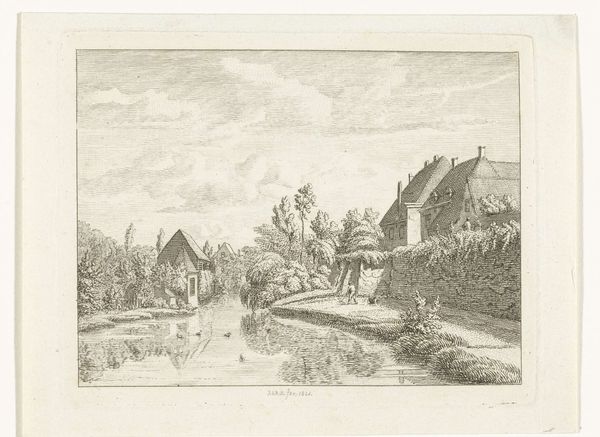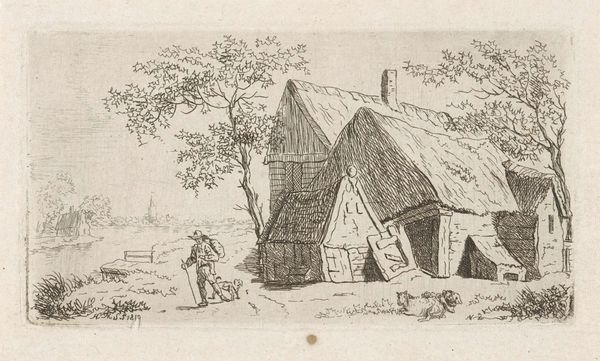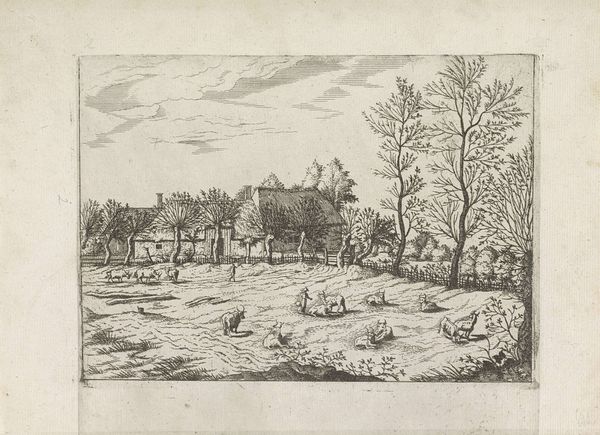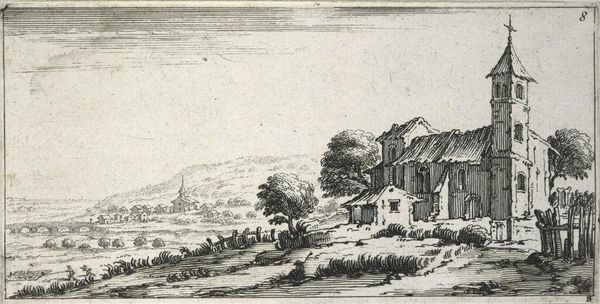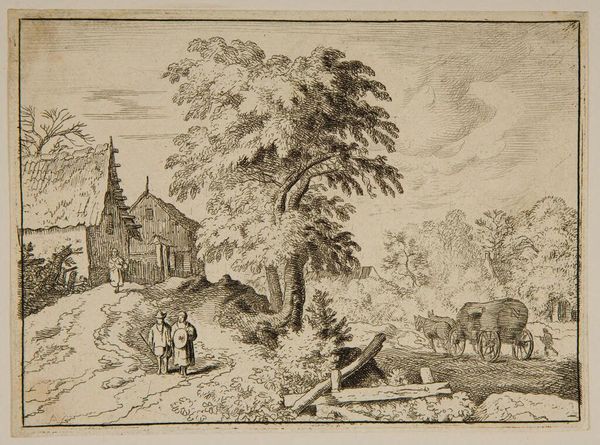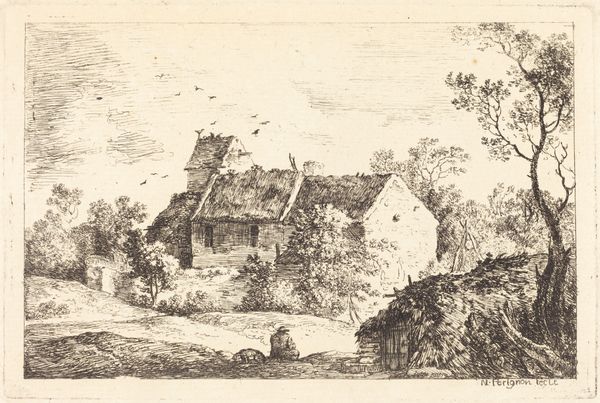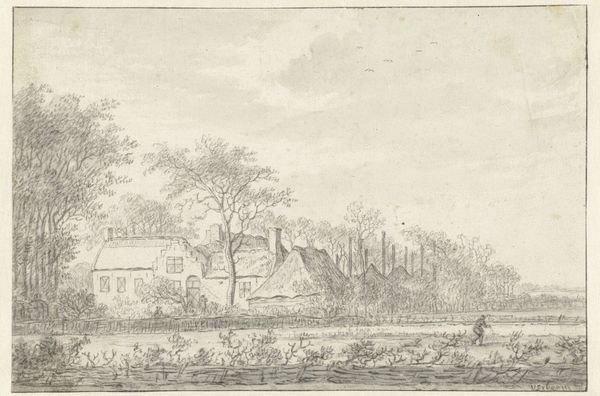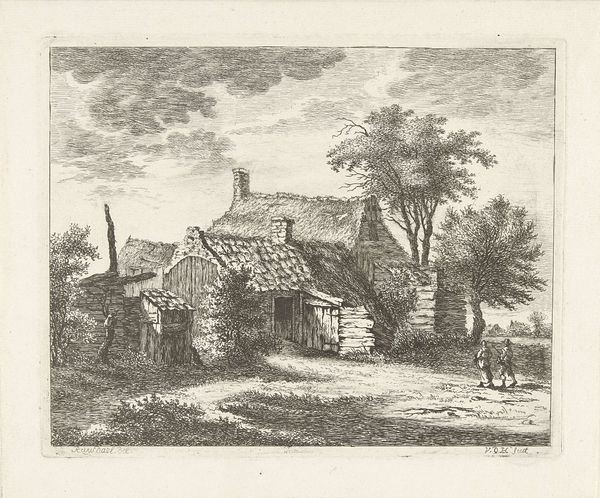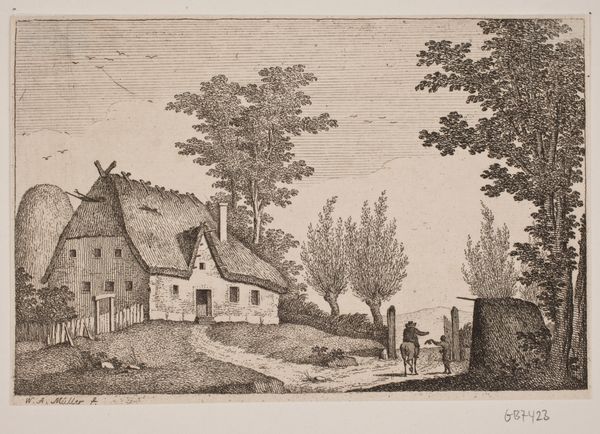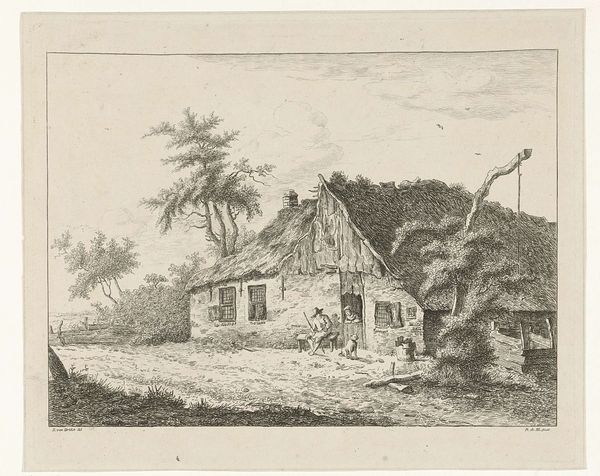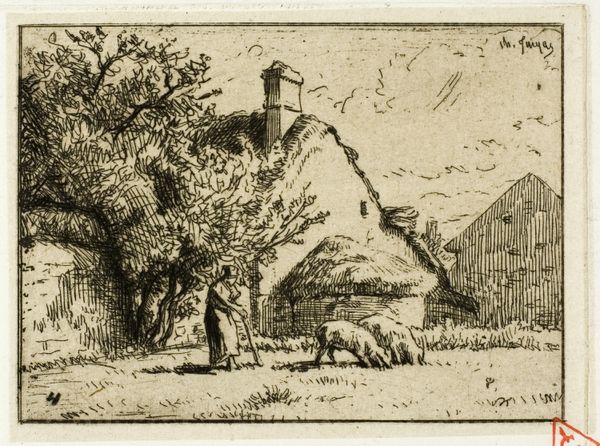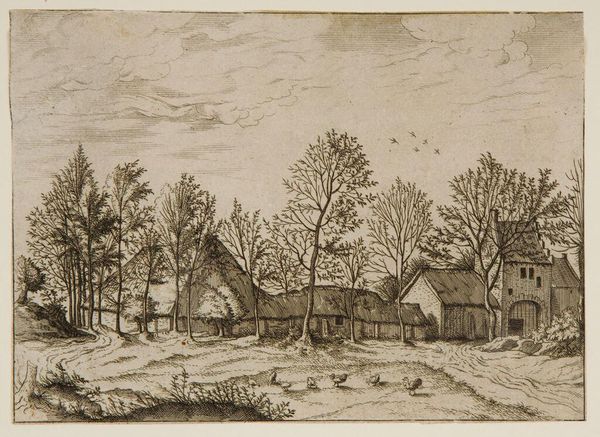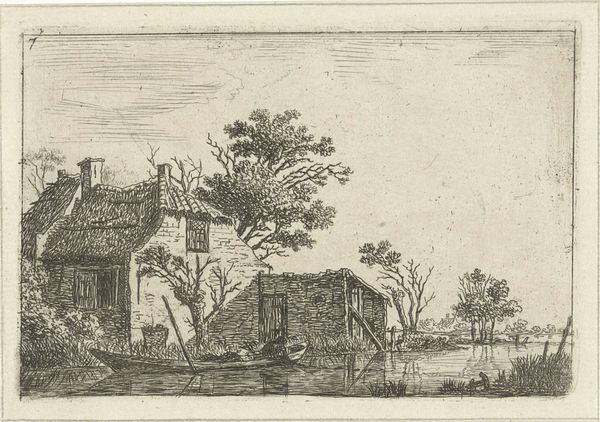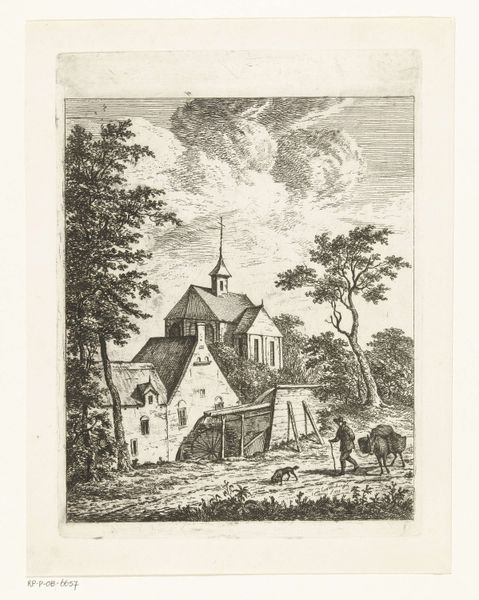
Copyright: CC0 1.0
Curator: This print, "Women Hanging Clothes," was created by Ferdinand Kobell, a German artist who lived from 1740 to 1799. It’s currently held at the Harvard Art Museums. Editor: My first impression is of a very ordered, almost stoic rural scene. The lines are so precise, giving it a sense of cool detachment, despite the everyday activity depicted. Curator: The scene, rendered through delicate etching, certainly reflects a specific moment in time, and the timelessness of domestic labor. The women, almost dwarfed by the house and trees, are a recurring motif. Editor: I’m curious about that juxtaposition—the monumentality of the architecture against the almost anonymous figures. It speaks to the structures, both physical and societal, that frame women’s lives and work. Curator: Indeed, the visual weight given to the home reflects the symbolic weight of the domestic sphere, which held so much cultural meaning. The women hanging clothes, an activity performed out in the open, carries a whole range of social and economic connotations. Editor: Yes, it makes me consider how this seemingly simple act can be read as a symbol of community, labor, and visibility – or the lack thereof – within the broader societal landscape. It definitely underscores the importance of looking at art within its historical and social frameworks. Curator: I agree. It’s fascinating how an image of such everyday life can offer a window into deeper meanings and cultural narratives. Editor: Absolutely, this print has given me a lot to consider about the intersection of women, work, and representation.
Comments
No comments
Be the first to comment and join the conversation on the ultimate creative platform.
